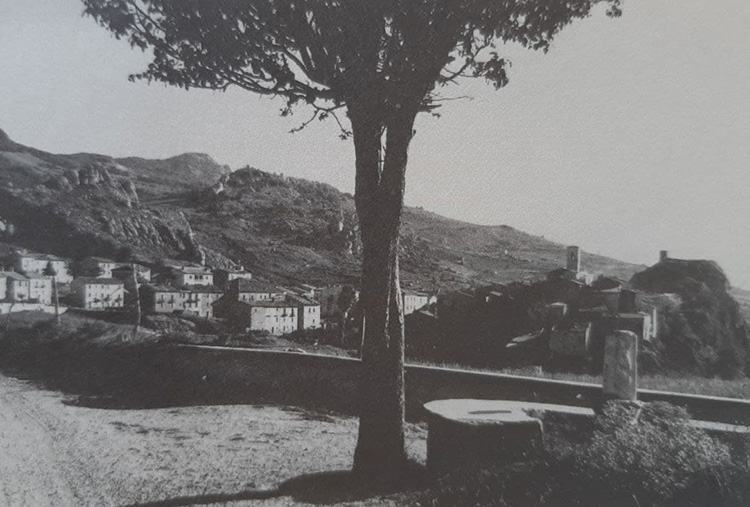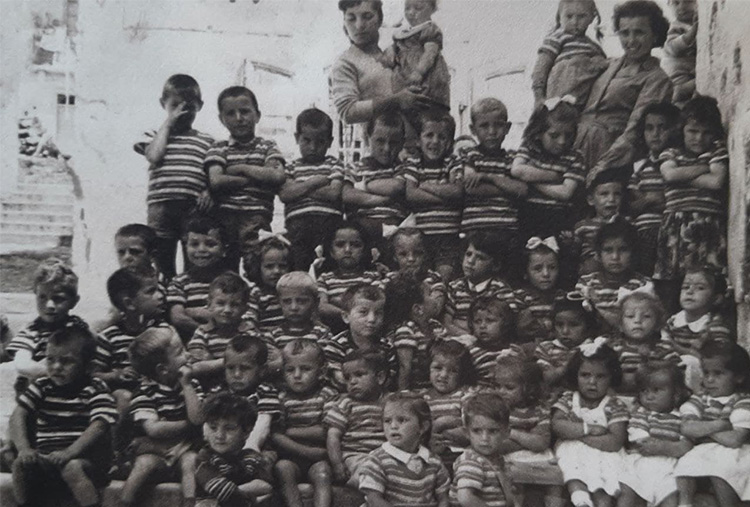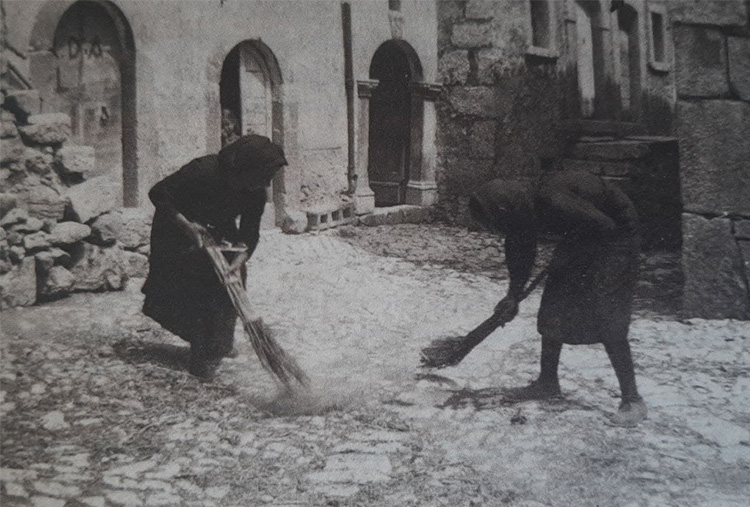The displacement and the refusal of the inhabitants of Pietransieresi
The festive atmosphere ended early and inevitably left room for the roars of the planes and the whistling of the bombs that rained down from the sky. On every street, in every town and in every district, the noisy gears of the German caterpillars can be heard, accompanied by the cadenced pace of the marching soldiers.
They also arrived in Abruzzo, ready to occupy every city or small village and every corner of this region, passing from the plains to the hills, climbing mountains, urban areas, rocky gorges and peaks.
It is mandatory to leave our own homes, go to work for the Germans, to build the defense lines. The order of evacuation and displacement for the entire population of Pietransieri arrived on October 30, 1943.


The village, for strategic needs, must be destroyed and the population must leave everything by 12 o'clock of the following day, except for a few clothes that are indispensable to go to the town of Sulmona.
Those who remain in the village or in the surrounding mountains in the days following the evacuation order, will be considered rebels and will be treated according to the war laws of the German army.
Peasants and herdsmen who had never imagined that it was possible to get out of the country and out of their own little piece of land were thrown out. All that remains for them is their ancestral and deep love for the place where they were born, a love as dear as life itself.
For the inhabitants of Pietransieri, the "Cuozz", clinging to their few things that represent their dimension of life, it is impossible to imagine leaving this small dimension to go to Sulmona.
The most precious asset they have is represented by a house and cattle, for which they are willing to sacrifice everything.
For this reason, only half of the population of Pietransieri decides to evacuate. About 200 inhabitants refuse to leave despite the threats of the German army.

The Mayor of Sulmona recounts:
"When the displacement took place, the situation in Pietransieri was as follows:
-
men in military service n.50
-
50 families and isolated people displaced in distant areas
-
women of various ages, old people unable to work, boys and children refugees in the district of Limmari, in farmhouses scattered in the area distant from Pietransieri from a minimum of 3 to a maximum of 5 kilometers n.80; adding the 32 who already lived there - n.112
-
Grilli's Farmhouse- n.88
-
refugees in other farmhouses scattered in the area n.90 in addition to 40 who were there n.130
-
able men given to the stain with the livestock to subtract it to the enemy and to be able to supply the nucleus more needy refugee in the district Limmari (women, old, boys and children) and at the same time to collaborate to the resistance with the partisans of the brigade Maiella n.70
All numbers are to be taken under benefit of inventory.